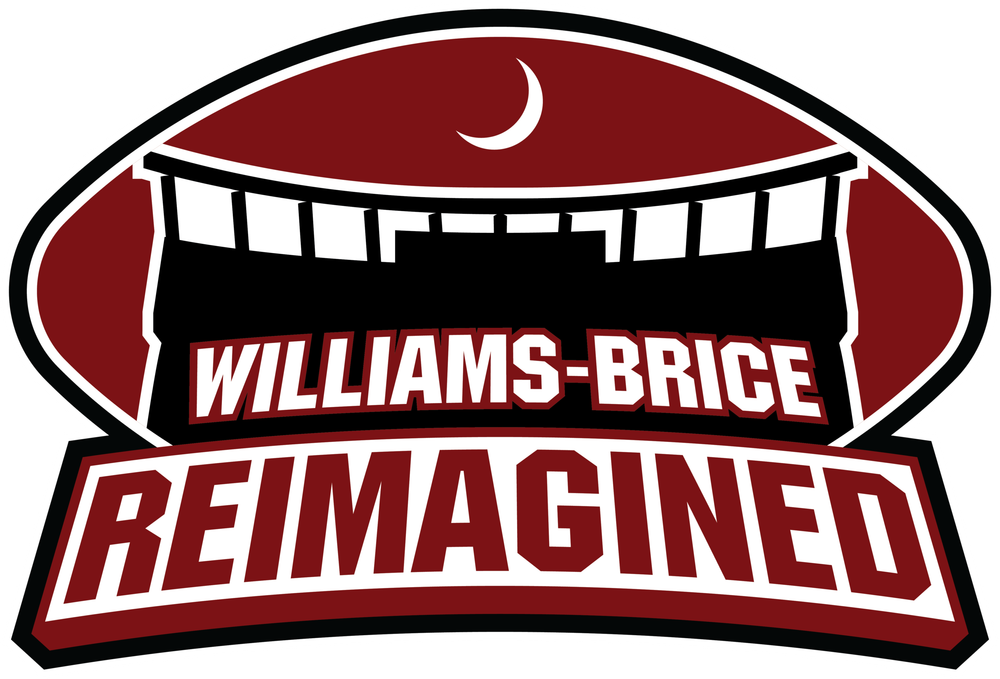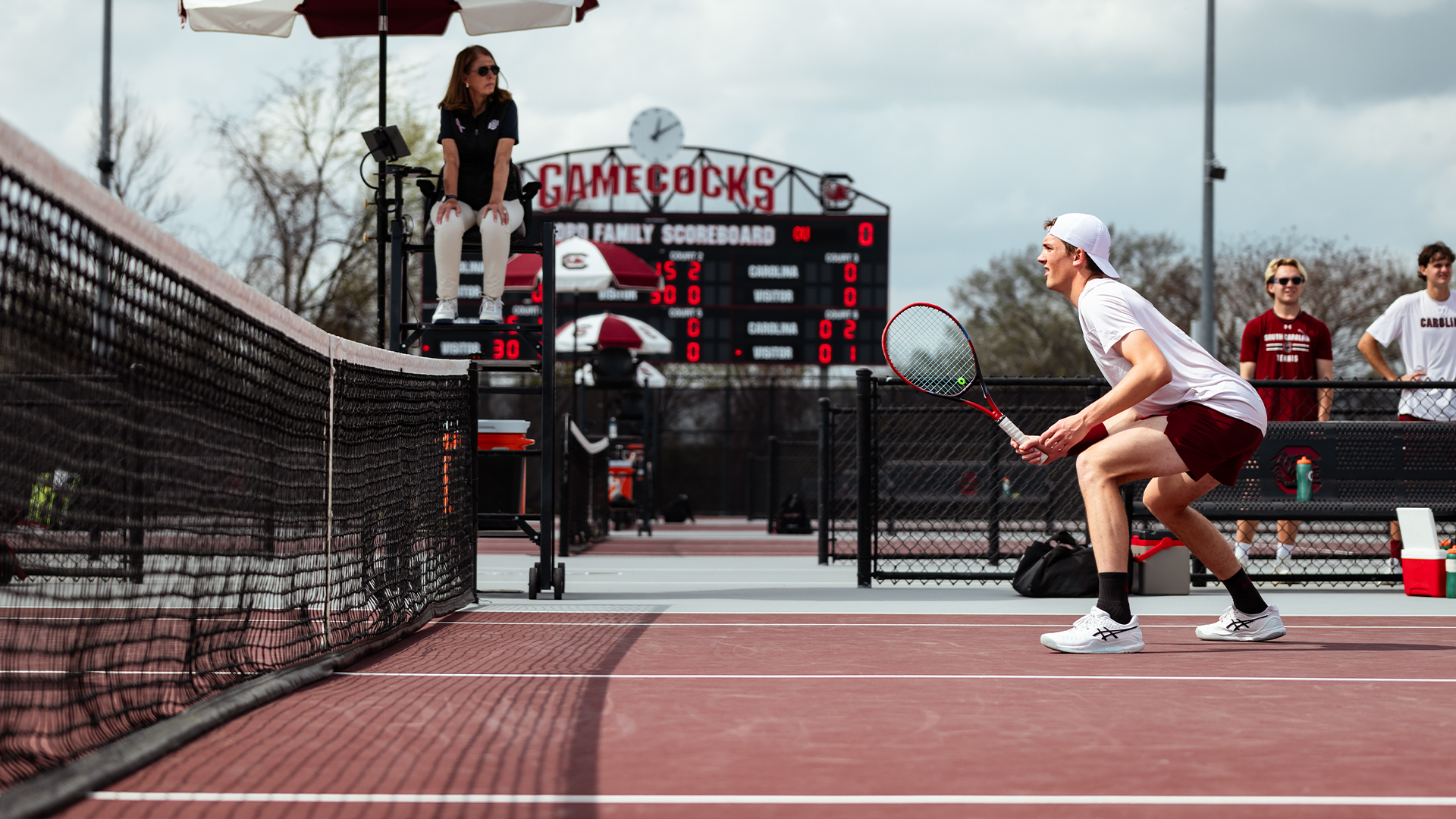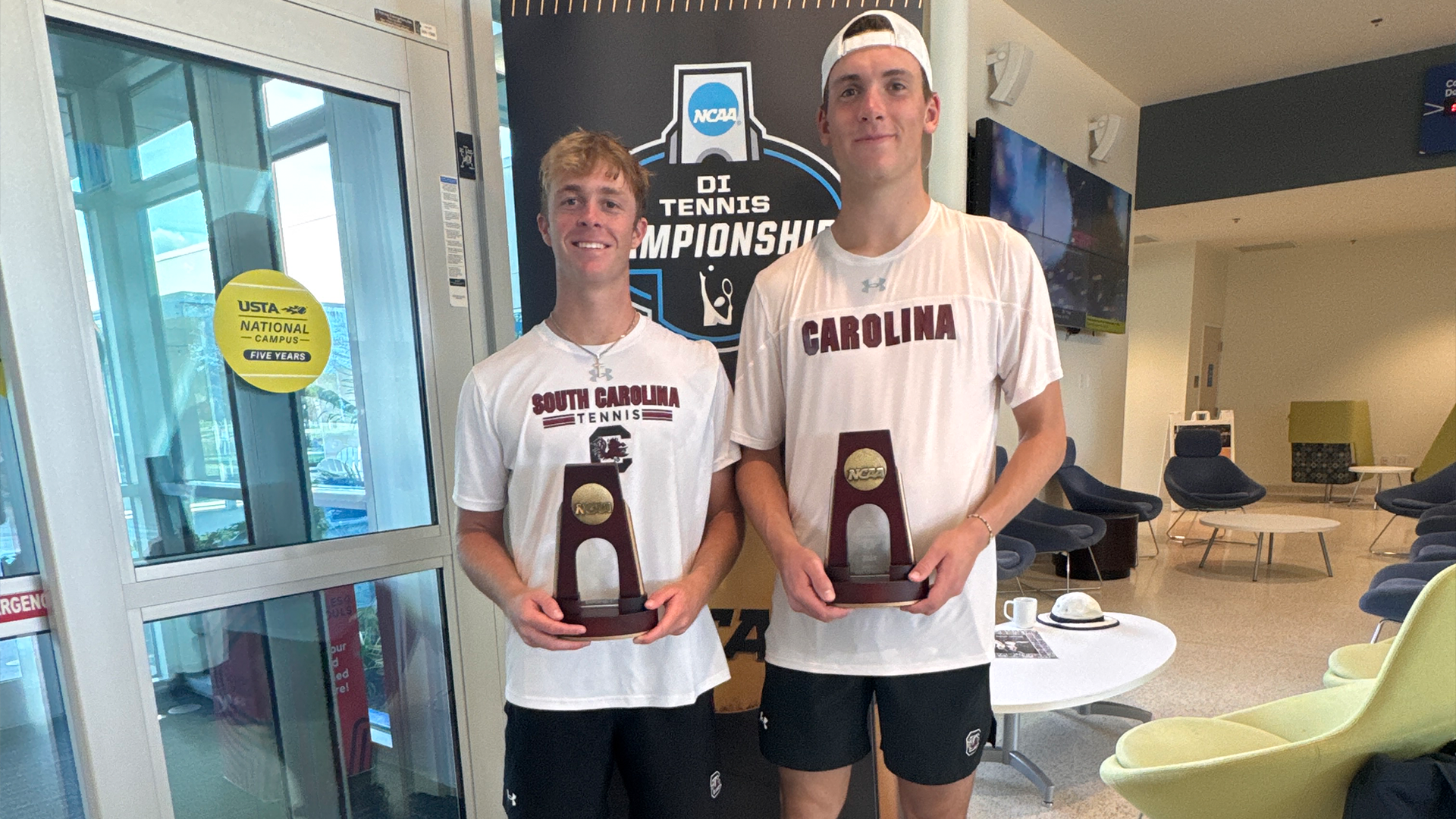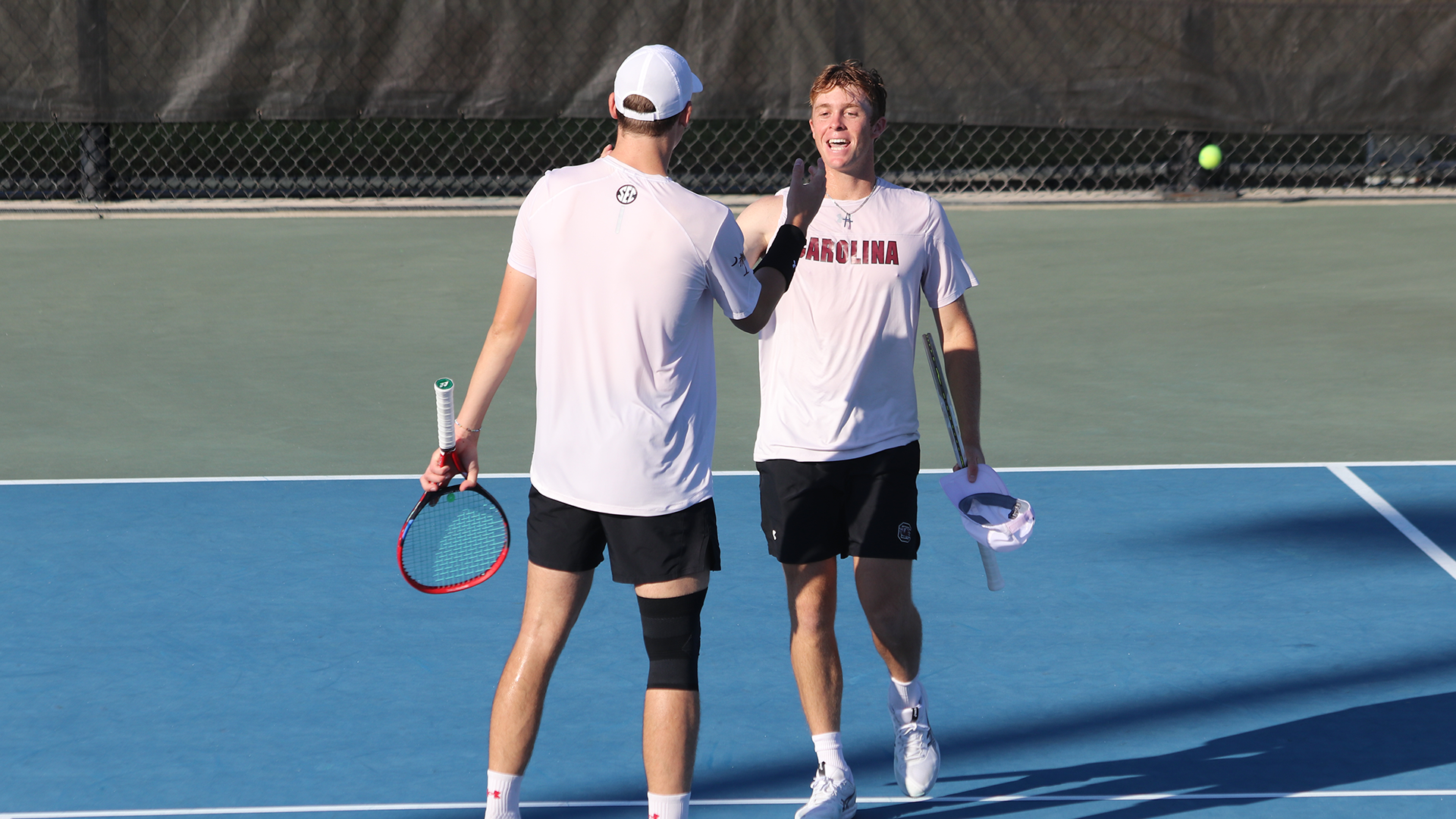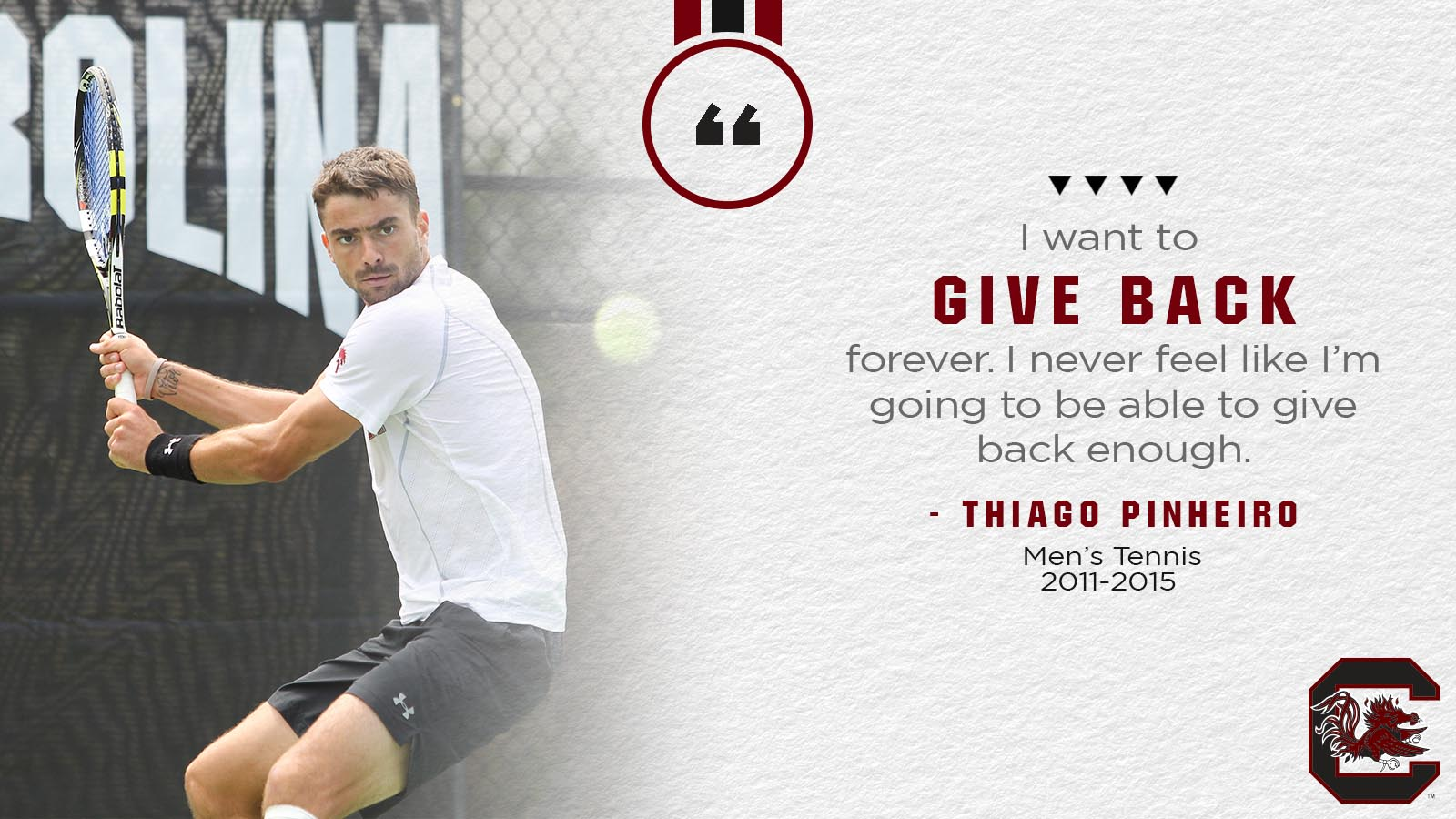
Former Gamecock Wants to Keep Making an Impact
As one of the first recruits in men’s tennis head coach Josh Goffi’s tenure at South Carolina, former team captain Thiago Pinheiro (2011-2015) wanted to make an impact on the program.
Now working as a financial planner in Greenville, S.C., the 26-year-old native of Brazil still wants to make an impact on his alma mater as a whole, as well as the tennis program.
“That’s something I was speaking to Josh about recently,” Pinheiro said. “I’m a big fan of the school itself because it really did provide so much. Everything I have in life, I owe to that school. I want to give back forever. I never feel like I’m going to be able to give back enough for what it did for me. Obviously, the tennis team was a central point for that. I’m a Gamecock Club member, and I donate back to the school. I go to matches, and I go to football games.
“I was thinking of other ways I can give back and mentoring is something I’d like to do. I feel like I’ve gone through enough things post-college that I could really bring an interesting perspective to them. Players need those go-to people. Sometimes you need more than your coaches to go to, whether it’s for academic life, personal life or whatever. You just need someone they can trust and will be there for them. I’m always thinking of ways I can still impact the program and help the guys.”
Pinheiro didn’t know much about the University of South Carolina before he arrived on campus, and Goffi became his go-to guy.
“I’m from Brazil originally, and I had never come on any visit to any school,” Pinheiro said. “I didn’t really know the difference between the University of South Carolina and other schools. I had a couple of mentors who were helping me during the recruiting process, ultimately Josh was the main reason. He is an inspiring guy, and you want to be around him. He’s a great leader. It was a big decision for me and for my family to be traveling so far away to an unknown country. We all felt that he could be that role model that I needed.
“He is still a mentor and role model for me today, but he’s also my friend. We still talk about a lot of personal stuff. I’m married now, and I used to see how well he treated his wife and daughters, and I remember things that he told me about how to be a good husband and father.”
“Nothing is given, and everything is earned.”
Pinheiro and his wife, Kristin, met at a tennis match his junior year at South Carolina.
Pinheiro finished his career ranked in the top 10 in five categories in the South Carolina record books, including dual-match doubles wins (7th, 47), SEC doubles wins (9th, 16) and SEC combined wins (8th, 31). He earned Second-Team All-SEC honors as a sophomore behind a career-best singles record of 20-6, and he was a three-time selection on the SEC Spring Academic Honor Roll.
Pinheiro’s best memories of his days as a student are of his teammates and being part of building a program.

“That’s what I miss the most,” Pinheiro said. “I don’t miss playing every day, but I miss the everyday with the guys. You take it for granted with the friendships and the bonds that you make. College tennis is such a small team that everyone is so close. Those guys really become your most trusted brothers. Tennis was an amazing experience, but in the grand scheme of things, I can still play tennis, but I can’t replicate that bond and the sacrifices that we made to get there.
“I realize now that the tennis stuff was unbelievable. Goffi is the best coach I’ve ever had, and I’ve had some really good coaches. He made me a better player. He also made a big impact on me as a person beyond college and tennis that has really shaped me into the adult, husband and friend that I am today. I draw a lot of lessons that I learned from him, even if I didn’t realize I was learning it from him at the time! I understand more about the important roles coaches have on student-athletes.”
After tackling a double major of economics and marketing, Pinheiro is now a certified financial planner with Northwestern Mutual in Greenville, S.C., where he has worked for a little over two years.
“I think there are a lot of similarities that you can draw from sports,” Pinheiro said of his new career. “Every day you have to go out there and earn it. You have to do your best or you’re not going to have any results, just like in tennis. Nothing is given, and everything is earned. The nature of the business in being a financial advisor is what I like in terms of helping families and provide them with financial security and independence. Money can cause a lot of stress for families, so to help guide folks in the right direction is huge deal for me.”
Looking back, Pinheiro is proud of the transitions he made in coming to the U.S. as well as adjusting to life after sports, and he hopes to help others in their transitions as well.
“I didn’t know any English when I first came to America, but I needed to make it happen,” Pinheiro said. “I come from a humble background. It was hard, but day by day it got less hard. The transition to life after tennis was hard because I was used to being on the court every day. Now you have to start thinking about being good at something else. That happens with athletes for every sport. When you’re a high-level athlete, you’re training all summer and not really working any jobs or doing internships. Your dream is to be a professional player, but at some point, playing comes to an end. Once you start thinking about that, it can be scary.”


